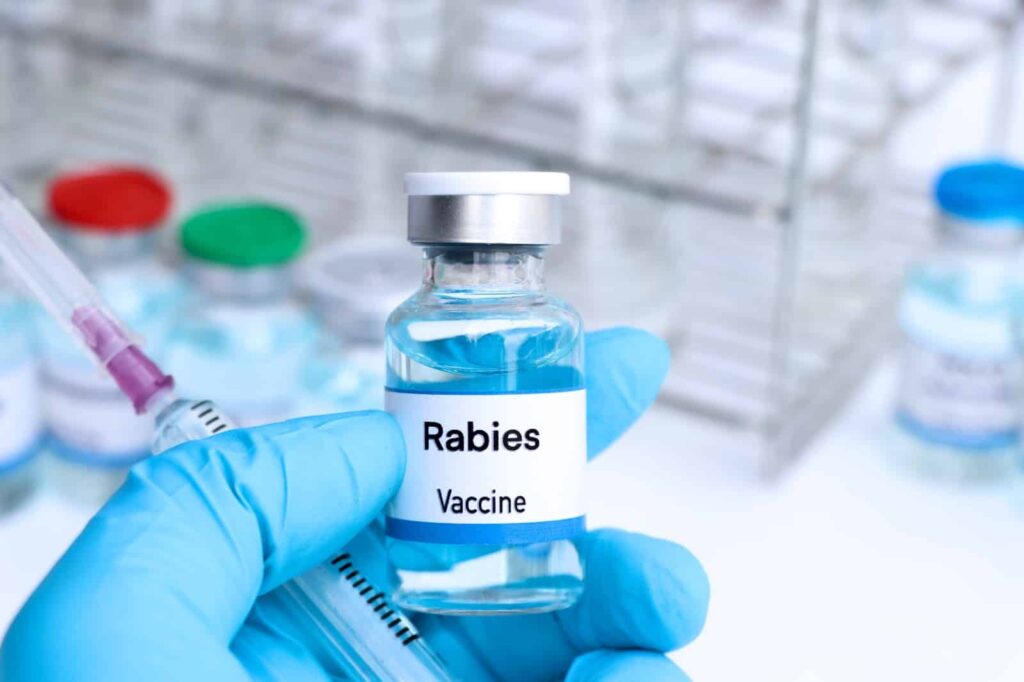Pharmacy

Rabies is a rare but very serious infection of the brain and nerves. It’s usually caught from the bite or scratch of an infected animal, most often a dog.
Rabies is found throughout the world, particularly in Asia, Africa, and Central and South America.
It’s not found in the UK, except in a small number of wild bats.
Rabies is almost always fatal once symptoms appear, but treatment before this is very effective.
There’s also a vaccine for people at risk of being infected.
You should consider getting vaccinated against rabies if you’re travelling to an area of the world where rabies is common and:
Visit our travel clinic if you think you may need the vaccine.
Even if you have been vaccinated, you should still take precautions to avoid coming into contact with rabies if you’re travelling in an area where rabies is found, and get medical advice straight away if you have been bitten or scratched.
Some people may need the rabies vaccine because they could come into contact with rabies through their work.
If you think this applies to you, speak to your employer or occupational health provider.
The rabies vaccine is given as injections into your upper arm.
You’ll need 3 doses of the vaccine, usually over a period of 28 days.
If you’re planning to travel to an area where rabies is found, you should complete the full course of 3 doses before you leave.
If you have been bitten or scratched by an animal in an area with a risk of rabies:
If this happens while you’re abroad, get local medical help immediately. Do not wait until you have returned to the UK.
If you have already returned to the UK without getting medical advice, it’s still a good idea to get help, even if it’s been several weeks since you were bitten or scratched.
It’s unlikely you have been infected with rabies, but it’s best to be safe.
Post-exposure treatment is nearly 100% effective if it’s started before any symptoms of rabies appear.
All mammals (including monkeys) can carry rabies, but it’s most common in:
Animals can spread the infection if they bite or scratch you or, or in rare cases, if they lick an open wound or their saliva gets into your mouth or eyes.
Rabies is not spread through unbroken skin or between people.
While travelling in an area where rabies is a risk:
If you’re travelling with a child, make sure they’re aware of the dangers and that they should tell you if they have been bitten, scratched or licked by an animal.
Check them for any wounds if they come into contact with an animal.
After having the rabies vaccine, some people have temporary soreness, redness and swelling at the injection site for 24 to 48 hours.
In rare cases, some people also experience:
The vaccines used in the UK contain an inactive (dead) form of the rabies virus, so you cannot catch rabies by being vaccinated.
Without treatment, the symptoms of rabies will usually start after 3 to 12 weeks, although they can start sooner or much later than this.
The first symptoms can include:
Other symptoms start a few days later, such as:
Once symptoms appear, rabies is almost always fatal.
In these cases, treatment will focus on making the person as comfortable as possible.
Diphtheria is a highly contagious and potentially fatal infection.
Copyright © 2023 Chertsey Pharmacy. All rights reserved.